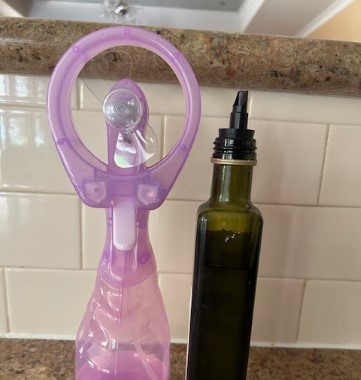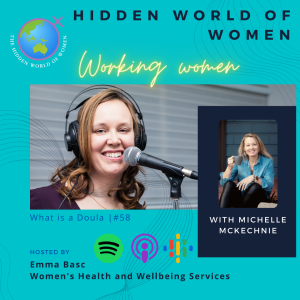By Michelle McKechnie
Pregnancy is one wild ride—packed with excitement, surprises, nerves, and weird and wonderful things happening to your mind and body! It is a MINEFIELD of information out there which can be very overwhelming. But there one secret ingredient that can truly shape your whole journey: continuity of care.
What is Continuity of Care?
Continuity of care means receiving consistent and coordinated care from the same provider or team of providers throughout pregnancy, childbirth, and the postnatal period. Rather than seeing a different doctor, midwife, or nurse at each appointment, women under continuous care and build a relationship with a familiar professional who understands their medical history, preferences, and unique circumstances.
Why Does Continuity Matter?
1. Better Health Outcomes
Studies show that continuity of care during pregnancy leads to fewer complications and better outcomes for both mothers and babies. Women are more likely to receive appropriate screenings, have individualised care plans, and avoid unnecessary interventions. Continuous care is associated with lower rates of preterm birth, reduced likelihood of caesarean sections, and higher rates of breastfeeding initiation.
For more information on the evidence for doulas:
https://evidencebasedbirth.com/the-evidence-for-doulas/
2. Enhanced Emotional Support
Pregnancy is not only a physical process but an emotional one. Familiarity with a trusted provider fosters a sense of safety, reducing stress and anxiety. Women feel more confident asking questions, voicing concerns, and discussing sensitive issues, which contributes to more personalised and effective care.
3. Stronger Communication
Clear and consistent communication is key in healthcare, especially during pregnancy. Continuity minimises the risk of information loss between providers. When one professional oversees the entire journey, they can detect patterns, follow up on previous concerns, and provide advice tailored to the evolving needs of the mother.
4. Empowerment and Informed Decision-Making
Continuity of care encourages shared decision-making. With trust and rapport built over time, pregnant women are more engaged in their care and feel empowered to make informed choices about their birth plans and overall health.
5. Smoother Transitions Between Stages
From early prenatal visits to labour, delivery, and postpartum care, pregnancy involves many transitions. Continuity provides a thread of stability, reducing the sense of being passed from one system to another. This consistent support is especially valuable during the often-overlooked postnatal period, where mental health and recovery are critical.

Photography by Sarah Del Borrello – MotherMother Doula
Is a doula necessary? – hell yes…..!
When it comes to pregnancy, birth, and the early postpartum period, consistent support can make all the difference. That’s where doulas come in—providing a unique layer of continuous, compassionate care that fills a crucial gap in the maternal healthcare journey
A doula is a trained professional who offers emotional, physical, and informational support to a woman before, during, and shortly after childbirth. Unlike doctors or midwives, doulas don’t perform clinical tasks. Their focus is on the whole person—her comfort, confidence, and sense of control.
One of the biggest challenges in modern maternity care is fragmentation. Expectant mothers often see multiple providers throughout their pregnancy, sometimes without ever forming a close connection. A doula stays with the mother across this entire journey, building trust and offering a familiar face during every stage.
This continuous presence can lead to:
- Lower stress and anxiety
- More positive birth experiences
- Fewer interventions during labour
- Improved postpartum recovery and bonding
Doulas help ensure that a woman’s voice is heard in every setting—whether in a birth centre, hospital, or at home. They also help bridge gaps in communication between the mother and her medical team, advocating for informed choices and respectful care.
What sets doulas apart is the relationship they build. By knowing the mother’s story, values, and goals, a doula provides personalised guidance that enhances—not replaces—medical care. This continuity fosters empowerment and confidence, especially in moments that can feel overwhelming or uncertain.

Photography by Sarah Del Borrello – MotherMother Doula
Privately Practicing Midwives or Community Midwifery Programme – is having a doula an overkill? – ummmm NO!
When a woman chooses both a doula and a privately practicing midwife, or continuity of care with a midwifery team, she’s assembling a team that blends clinical expertise with emotional and physical support—before, during, and after birth. In these settings having a doula to help navigate early labour is pivotal in making sure that your birth team isn’t depleted or exhausted especially when labour runs over the course of a few days.
Here’s how their roles complement each other:
Distinct, But Complementary Roles
- Midwife: A medically trained professional who provides clinical care—monitoring foetal development, managing labour and birth, and addressing medical needs.
- Doula: A non-medical support person who focuses on emotional, physical, and informational support. They offer comfort measures, encouragement, and advocacy. Doulas are a brilliant addition if you are wanting to capture photos, support for siblings, and a well-earned rest for birth partners. Labour day is a major event!
They don’t replace each other—they enhance each other’s work.
In short, doulas aren’t just a luxury—they’re a powerful ally in creating safer, more connected, and more dignified birth experiences.
Obstetric Led Care – Is this a form of continuity of care? – hmmmmm 🤨
In a sense – yes. In particular for medically assisted pregnancies (IVF). Obstetric led care is often suited for high-risk pregnancies or those with complications.
Some things to know:
- Typically involves more medical monitoring and access to interventions like induction, epidurals, or caesarean sections.
- Often takes place in a hospital setting with access to surgical facilities and specialists.
- Care is more clinically focused, sometimes with less time for emotional or holistic support (depending on the provider and system).
Pros:
- Essential for managing complex or high-risk situations.
- Immediate access to medical interventions and specialists.
- Useful for those who prefer a more medicalized approach.
For more information – here is a great article written by Vicki Hobbs from BacktoBasics Birthing wrote this recent article.
Pip Winn Owen from Birth Savy wrote another article:
https://birthsavvy.com.au/private-obs-perth-resistant-to-doulas
My final thoughts
Pregnancy is a time when care should be as consistent and compassionate as possible. Continuity of care isn’t just a “nice to have”—it’s a cornerstone of quality maternal health. By ensuring that every woman has access to a continuous, respectful, and an informed care journey, we lay the foundation for healthier families and stronger communities.

Privately Practicing Midwife Jess Buckels, Partner Rob the greatest, Doula Michelle McKechnie (yours truly), Birthing Mumma – the amazing Ash.
Unsure how to build your birth team? Here’s a great article written by Sarah Del Borello:
https://www.mothermotherdoula.com/blog/birthing-options-perth-to-mandurah-western-australia
For more information, please contact me.
Michelle McKechnie
Perth Doula Services
0419 571 387
Website: www.perthdoulaservices.com.au
Instagram: https://www.instagram.com/perthdoulaservices/
Facebook Link: https://www.facebook.com/perthdoulaservices










